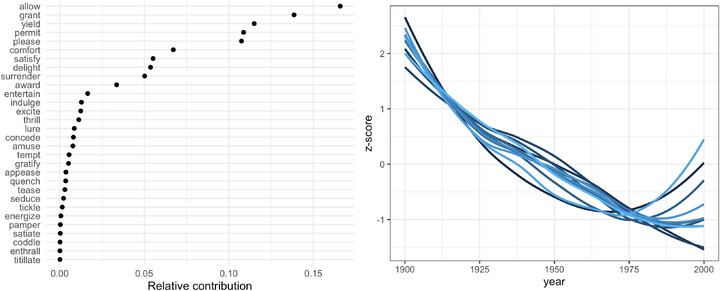
Abstract
Within the conceptual framework of the Tightness-Looseness paradigm, we study the dynamics of the social salience of self-control (tight) vs-self-indulgence (loose) orientations across the 20th century on the basis of the English Google Books corpus, by means of the construction of specific lexica of which we track their relative frequencies. We find that whereas the trend of self-control displays a steady increase throughout, that of self-indulgence is U-shaped, so that following a decline along the most part of the century, starting from the late 70s-early 80s we observe a reversal of the trend that signals an increasing salience of self-indulgence. Such result seems to reflect the consumerist turn that has characterized the post-industrial cycle from the 80s onwards. The coexistence of growing trends for mutually antagonizing orientations calls for further analysis of their social interplay. We also perform a parallel analysis on semantically related lexica that confirms the robustness of our findings.